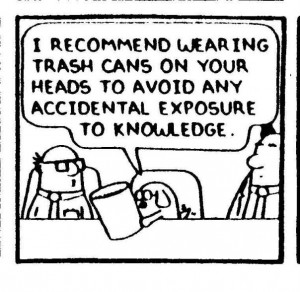Ensuring Our Common Future
What Nuclear Weapons Teach Us About Ourselves
by David Krieger
Nuclear weapons are the most fearsome and destructive killing devices yet  created by the human species. They have the capacity to destroy cities, countries, and civilization. Yet, although these weapons give rise to some concern and worry, most humans on the planet are complacent about the inherent dangers of these weapons.
created by the human species. They have the capacity to destroy cities, countries, and civilization. Yet, although these weapons give rise to some concern and worry, most humans on the planet are complacent about the inherent dangers of these weapons.
It is worth exploring what our seeming indifference toward these weapons of mass annihilation teaches us about ourselves, and how we might remedy our malaise.
1. We are ill-informed. We appear to go about our daily lives with a self-assured degree of comfort that we will not be affected by the dangers of the weapons. We need more education about the extreme dangers and risks posed by nuclear weapons.
2. We are tribal. We divide ourselves into national tribes and identify with our own tribe while demonizing “the other.â€Â We need to be more global in our thinking. We need to think as members of the human species, not as members of a national tribe.
3. We are self-serving. We see our own nuclear weapons and those of our allies as being positive and useful, while we view the nuclear weapons of our enemies as being negative and harmful. We need to realize that nuclear weapons, as instruments of indiscriminate mass destruction, are illegal, immoral and dangerous in any hands, including our own.
4. We are arrogant. We seem to take perverse pride in our cleverness at having created such overwhelmingly powerful weapons. We need to take pride in constructive uses of our science-based technologies, and recognize the inherent dangers and immorality of their destructive uses.
5. We are pathological. We rely for our protection upon these weapons that threaten to kill millions of innocent civilians. We need to realize that true security cannot be based upon the threat of mass murder of innocents.
6. We are deluded. We believe that we will not survive threats from “the other†if we do not rely upon these weapons of mass annihilation for our security. We need to engage “the other†in dialogue until we realize that our common humanity supersedes our differences, and our common future demands our unity.
7. We are reckless. We are willing to bet the human species and the human future that we can keep these weapons under control. We need to stop playing Russian roulette with the human future.
 8. We are foolish. We trust our leaders to act responsibly, so as to keep nuclear weapons under control. We need to realize that this is too great a responsibility for any person and that all leaders do not act responsibly at all times.
8. We are foolish. We trust our leaders to act responsibly, so as to keep nuclear weapons under control. We need to realize that this is too great a responsibility for any person and that all leaders do not act responsibly at all times.
9. We are timid. We do not challenge the status quo, which gives rise to such extreme dangers. We need to confront the challenges posed by nuclear weapons and give voice to our legitimate fears of the weapons themselves.
10. We are adolescent. As a species, we have not matured to the point of taking responsibility for, and directly confronting, the nuclear threat to ourselves and future generations. We need to grow up and take responsibility to assure our common future for ourselves and generations yet unborn.
Individually and collectively, we are threatened by nuclear weapons in the arsenals of nine countries. If we fail to act expeditiously to abolish these arsenals, the consequence is likely to be nuclear weapons proliferation to other countries and eventually their use.
The question that confronts humanity is: Can we end the nuclear era and ensure our survival as a species? To do this, we will need to change our thinking about the weapons and about ourselves. I think this is what Albert Einstein was alluding to when he said, “The unleashed power of the atom has changed everything save our modes of thinking, and thus we drift toward unparalleled catastrophe.â€Â Preventing such catastrophes must begin with changing our thinking, followed by engaging in actions to end the danger. Species-wide threats must be faced with species-wide awareness and engagement.
The further question that awaits an answer, assuming we can change our modes of thinking, is whether we are sufficiently powerful to control and eliminate the threats posed by the weapons. Individually we are not and nationally we are not. But collectively and globally we have the potential to assert a constructive power for change that is far greater than the destructive power of the weapons themselves.
David Krieger is president of the Nuclear Age Peace Foundation. His book, The Challenge of Abolishing Nuclear Weapons, was released in paperback in 2010. This article originally appeared on the NAPF site, and is reprinted here by permission.
